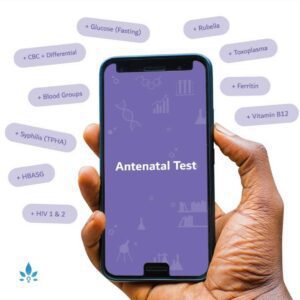GERD: Gastrointestinal Reflux in Children


Does your baby spit up a lot? Have you ever wondered if it is normal? For most babies, spitting up occasionally is no big deal—but sometimes it can be a sign of an underlying condition that requires medical attention.
Typically, when food (or milk) is swallowed, it travels through the mouth, down the esophagus, and into the stomach. A small muscle (sphincter) located at the end of the esophagus loosens to allow the food to pass, then tightens back up to prevent stomach acid from coming back up into the esophagus.
Gastroesophageal reflux (GER) occurs when the stomach contents come back up into the esophagus and mouth because of a weak sphincter muscle. Reflux is a normal occurrence in babies and does not usually cause any problems or symptoms. In fact, GER occurs in over two-thirds of all otherwise healthy babies. Most babies are “happy spitters,” and even if they spit up frequently, the reflux causes them no discomfort or problems.
Some babies, however, will become very fussy when they spit up because the stomach acid causes irritation of the lining of the esophagus. In these cases, babies are diagnosed with gastroesophageal reflux disease (GERD), a more serious form of GER. Babies with GERD may be very fussy during feeds, arch their backs, spit up frequently, and have poor weight gain. Your child’s doctor will help you differentiate between GER and GERD.
If the reflux causes your baby no problems, your doctor may simply instruct you to use “reflux precautions.” These include:
- Holding your baby upright for 20-30 minutes after each feed
- Giving your baby smaller, more frequent feeds
However, if your baby is diagnosed with GERD, your doctor may recommend the following in addition to “reflux precautions:”
- For formula-fed babies, changing formula to a hydrolyzed or amino acid formula
- For breastfed babies, eliminating cow’s milk and eggs from maternal diet
- Thickening feeds with rice cereal or thickening agent
- A trial of anti-reflux medications, including acid blockers or proton pump inhibitors
Babies who do not improve on the above treatments may need to see a pediatric gastroenterologist for definitive diagnosis and management. Potential tests may include:
- An endoscopy—a small camera is placed in the esophagus to look for signs of irritation and ulcers.
- An upper GI—a specialized x ray using contrast is used to look at the anatomy of the esophagus and stomach.
- A pH probe—a small tube is placed in the esophagus and the pH is measured, to determine how often the baby has episodes of reflux.
The good news is that most babies will outgrow gastroesophageal reflux by around 18 months old. Uncommonly, babies may continue to experience symptoms into childhood.
Sources:
- UptoDate
- Acid reflux.
Pediatrics - Gastroesophageal reflux: Management guidance for the pediatrician.
Powered by Bundoo®











































